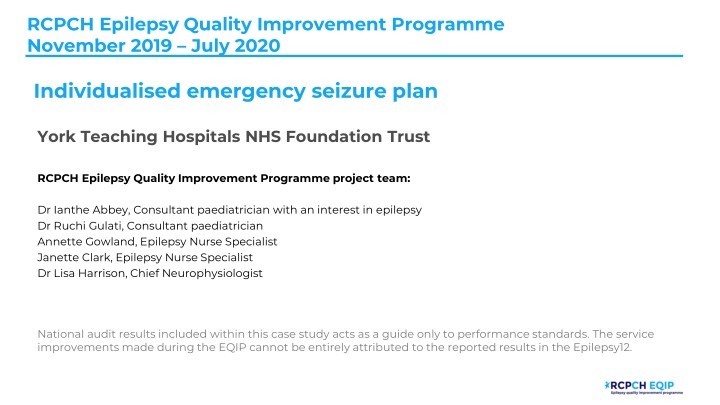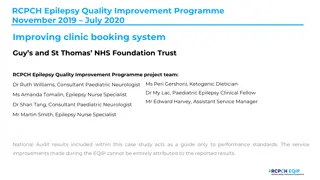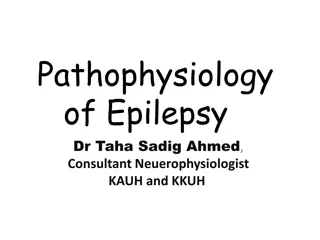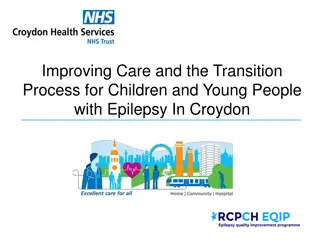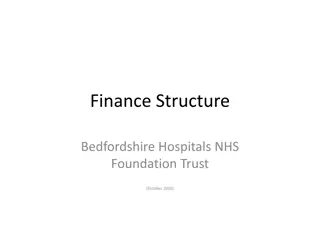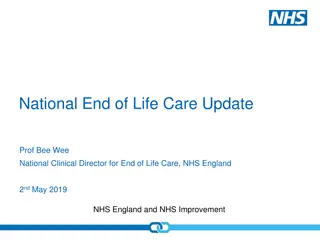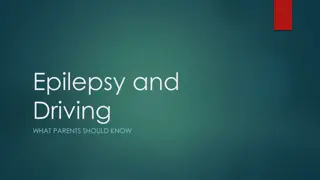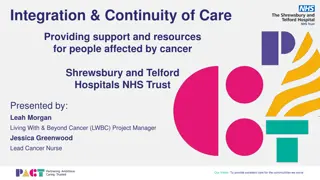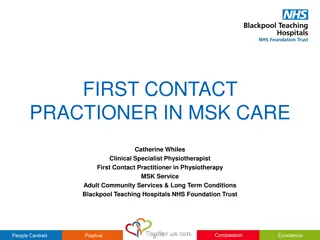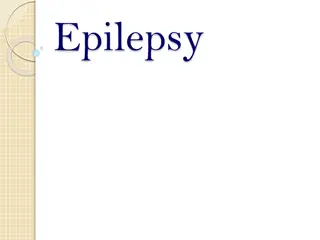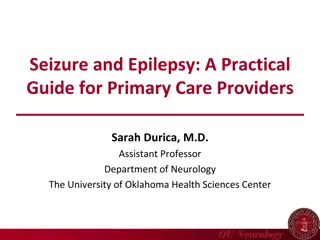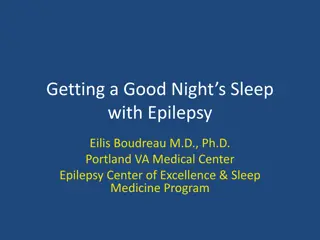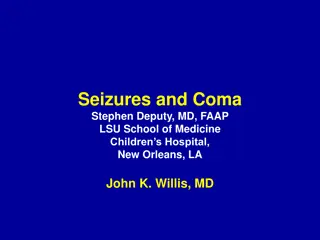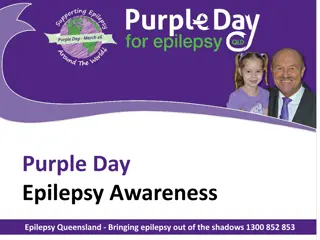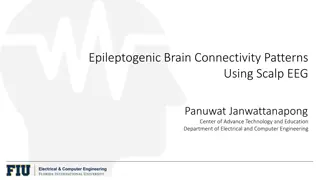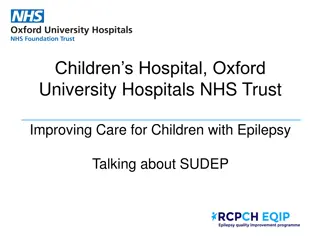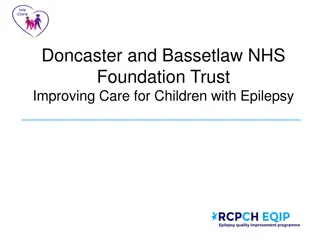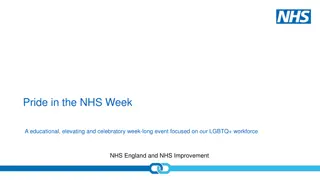Enhancing Care for Children with Epilepsy: A Quality Improvement Initiative at York Teaching Hospitals NHS Foundation Trust
Development of a digital epilepsy passport aiming to improve care and reduce risks for children with complex epilepsy at York Teaching Hospitals NHS Foundation Trust. The initiative addressed issues such as misplacement of paper emergency seizure plans, leading to delays in treatment. By incorporating individualized seizure plans and patient feedback, improvements were made to enhance communication and patient safety.
Download Presentation

Please find below an Image/Link to download the presentation.
The content on the website is provided AS IS for your information and personal use only. It may not be sold, licensed, or shared on other websites without obtaining consent from the author.If you encounter any issues during the download, it is possible that the publisher has removed the file from their server.
You are allowed to download the files provided on this website for personal or commercial use, subject to the condition that they are used lawfully. All files are the property of their respective owners.
The content on the website is provided AS IS for your information and personal use only. It may not be sold, licensed, or shared on other websites without obtaining consent from the author.
E N D
Presentation Transcript
RCPCH Epilepsy Quality Improvement Programme November 2019 July 2020 Individualised emergency seizure plan York Teaching Hospitals NHS Foundation Trust RCPCH Epilepsy Quality Improvement Programme project team: Dr Ianthe Abbey, Consultant paediatrician with an interest in epilepsy Dr Ruchi Gulati, Consultant paediatrician Annette Gowland, Epilepsy Nurse Specialist Janette Clark, Epilepsy Nurse Specialist Dr Lisa Harrison, Chief Neurophysiologist National audit results included within this case study acts as a guide only to performance standards. The service improvements made during the EQIP cannot be entirely attributed to the reported results in the Epilepsy12.
Individualised emergency seizure plan- York Teaching Hospitals NHS Foundation Trust Project aim: To develop a digital epilepsy passport to communicate information to children and young children with the aim of improving their care and reducing risk by June 2020. Background: Prior to the EQIP, the York Teaching Hospitals NHS Foundation Trust paediatric epilepsy team experienced the misplacement of paper copy individualised emergency seizure plan for patients with complex epilepsy seen in the Emergency Department (ED). This would result in long delays in clinical treatment or the patient requiring intensive care admission because of the difficulties with locating the digital copy of the plan on the Trust system. Patient and families feedback on whether they felt the service held sufficient information on their child s epilepsy were: 70% of families reported the service held sufficient information, 20% felt the current system was helpful to their child and only 30% felt the schools found the current communication useful. When asked if a passport would be an improvement: 80% of families reported they strongly agreed it would help parents and carers; 90% strongly agreed it would help the child. Area of focus: To create an alert for the individualised emergency seizure plans on the electronic medical records. To develop and test a patient held Epilepsy passport, incorporating an individual epilepsy care plan.
Individualised emergency seizure plan- York Teaching Hospitals NHS Foundation Trust Team driver diagram
Individualised emergency seizure plan- York Teaching Hospitals NHS Foundation Trust Changes: The team focused on two main changes for their improvement project. The first was to arrange a meeting with their Trust IT development team and the patient safety lead to discuss the effects of when ED staff are unable to find a digital copy of the patient s individual emergency seizure plan and the length of time it takes in comparison to finding an allergy status for a patient on the hospital system. Emphasising the importance of immediate treatment for patients experiencing seizures when a child arrives in the ED. The meeting resulted in confirming the addition of the alert to the hospital system against all epilepsy emergency seizure plans. A review of the RCPCH Epilepsy passport led to the redesign of a Trust version of the passport that went through multiple tests and iterations with NHS colleagues and patients and families. The feedback provided feeds into changes to enable more space for seizure descriptions and emergency rescue plans. Additional feedback captured from patients and families advised the following: Make the passport more user-friendly. Incorporate a clear individual care plan. Be more specific for the child. Aimed at the wrong target audience (e.g., currently focused on doctor-to-doctor communication)
Individualised emergency seizure plan- York Teaching Hospitals NHS Foundation Trust Results from developing the passport in co-production with patients and families: Using PDSA (Plan, DO, Study, Act) QI methodology, the Trust version of the passport went through several tests of change, which highlighted required changes in formatting the document to keep the document concise and created additional use of space for a detailed seizure description for non-medical carers. Identified inconsistencies in the use of medical terminology. The medical language was simplified, and the list of epilepsy syndromes was removed because it was not helpful to parents, carers, or education staff. Changed sections on when to call an ambulance from If you believe that the child/young person needs urgent medical attention to If you remain worried about the child/young person. . Lots of positive feedback had been received, which had been shared widely. Reduce the non-drug treatment section to one text box from three text boxes. Removed conflicting statements on seizure management; many non-essential parts were removed. Electronic links to additional seizure information were added, and the same information was given in paper copy. Identified the need to gain permission from BUCCOLAM (the treatment medication for prolonged, acute, convulsive seizures in patients) to include their images for administration guidance. Identified the need to approach Epilepsy Action to request the inclusion of their first-aid seizure advice.
Individualised emergency seizure plan- York Teaching Hospitals NHS Foundation Trust Results from developing the passport in co-production with patients and families:
Individualised emergency seizure plan- York Teaching Hospitals NHS Foundation Trust Results from developing the passport in co-production with Epilepsy Action
Individualised emergency seizure plan- York Teaching Hospitals NHS Foundation Trust Results from developing the passport in co-production with BUCCOLAM
Audit results for cohort 3 - Comprehensive care planning content - York Teaching Hospitals NHS Foundation Trust NICE recommends that children and young people with epilepsy have an agreed and comprehensive care plan (Quality statement 4). 100% of children and young people diagnosed with epilepsy in York Teaching Hospital NHS Foundation Trust had documented evidence of communication regarding relevant core elements of care planning. Percentage of CYP with documented evidence of communication regarding core elements of care planning The percentage of CYP with evidence of 100% communication 80% regarding each element 60% of care planning has 40% continued to increase in 20% 2021. 0% 2019 2020 2021 Prolonged seizures Water safety First aid General participation and risk Service contact details Core elements
Audit results for cohort 3 - Comprehensive care planning content - York Teaching Hospitals NHS Foundation Trust NICE recommends that children and young people with epilepsy have an agreed and comprehensive care plan (Quality statement 4). 100% of children and young people diagnosed with epilepsy in York Teaching Hospital NHS Foundation Trust had documented evidence of communication regarding relevant core elements of care planning. The percentage of CYP with evidence of communication regarding each element of care planning has continued to increase in 2021 with most core elements achieving 100%, above regional and national average results. 2019 2020 2021 Percentage of children with documented evidence of discussion of: 2021 YPEN 2021 England & Wales Core elements of care planning 67% 87% 100% 92% 75% Parental prolonged seizures care plan 0% 91% 80% 97% 92% Water safety 83% 95% 100% 94% 84% First aid 100% 97% 100% 98% 87% General participation and risk 75% 92% 100% 94% 85% Service contact details 92% 95% 100% 98% 93%
Audit results for cohort 3 - Comprehensive care planning content York Teaching Hospitals NHS Foundation Trust The percentage of CYP with evidence of communication regarding core elements of care planning has continued to increase in 2021 and has risen above national and regional levels. Percentage of CYP with documented evidence of communication regarding core elements of care planning 100% 90% 80% 70% 60% 50% 40% 30% 20% 10% 0% 2019 2020 2021 RCB YPEN England & Wales
Audit results for cohort 3 - Individualised emergency seizure plan- York Teaching Hospitals NHS Foundation Trust NICE recommends that children and young people with a history of prolonged or repeated seizures have an agreed written emergency care plan (Quality statement 6). 80% of children and young people diagnosed with epilepsy in York Teaching Hospital NHS Foundation Trust and on rescue medication had a parental prolonged seizure care plan. The percentage of CYP with evidence of a documented Individualised emergency seizure plan has remained above national and regional levels in 2021. Performance indicator 10: Comprehensive Care Planning agreement 2019 2020 2021 2021 YPEN 2021 England & Wales 70% % of children and young people with epilepsy after 12 months where there is evidence of a comprehensive care plan that is agreed between the person, their family and/or carers and primary and secondary care providers, and the care plan has been updated where necessary 67% 90% 88% 86% % of children and young people with epilepsy after 12 months that had an individualised epilepsy document with individualised epilepsy document or a copy clinic letter that includes care planning information % of children and young people with epilepsy after 12 months where there was evidence of agreement between the person, their family and/or carers as appropriate 75% 100% 96% 94% 91% 75% 90% 88% 90% 79% % of children and young people with epilepsy after 12 months where there is evidence that the care plan has been updated where necessary 67% 92% 92% 88% 75%
Individualised emergency seizure plan- York Teaching Hospitals NHS Foundation Trust Challenges: Schools and many other organisations were closed due to the COVID-19 pandemic, which made it difficult to perform tests of the plan in schools, activity clubs, and short-break facilities. Epilepsy nurses during the pandemic were being moved predominantly off-site, which became a barrier for the team to provide fast and effective communication with their patients. In May, there was recognised apathy amongst the team about the EQIP project, and due to the effects of the pandemic, the project became of low priority. Completing the tests and acting upon the changes became time-consuming due to cross-site working. Some team members were working from home, and annual leave was taken at different stages of the project.IT skills were also a challenge!
Individualised emergency seizure plan- York Teaching Hospitals NHS Foundation Trust Outcomes the team achieved the following: Increased engagement with IT led to creating an alert for individualised emergency seizure plans on internal systems that is accessible for ED teams. 100% of the individualised emergency seizure plans were uploaded to the Trust system. Developed the structure and content of a locally tested epilepsy passport in co-production with patients, families, and Epilepsy Action. National audit results confirmed: 100% of children and young people diagnosed with epilepsy in York Teaching Hospital NHS Foundation Trust had documented evidence of communication regarding relevant core elements of care planning. The percentage of CYP with evidence of communication regarding each element of care planning has continued to increase in 2021. With most core elements achieving 100%, above regional and national average results. The percentage of CYP with evidence of communication regarding core elements of care planning has continued to increase in 2021 and has risen above national and regional levels. 80% of children and young people diagnosed with epilepsy in York Teaching Hospital NHS Foundation Trust and on rescue medication had a parental prolonged seizure care plan.
Individualised emergency seizure plan- York Teaching Hospitals NHS Foundation Trust Lessons learnt: We worked collaboratively as a team over the course of the programme and were able to develop better working relationships, despite the difficulties experienced with the pandemic. The team plans to distribute the developed passport electronically to families with embedded links that signpost them to extra information, whereas previously this would have been in paper format. Stay positive as much as possible! In many ways, virtual and remote working have benefited both staff members and families. Although there was no replacement for face-to-face contact, the team plans to continue to review the service changes made. Families were generally very understanding of service constraints. Many families preferred virtual contact during the pandemic, which could be integrated into future processes.. Visual presentation of team project intervention Video presentation Poster
https://eqip.rcpch.ac.uk eqip@rcpch.ac.uk @RCPCHEQIP
